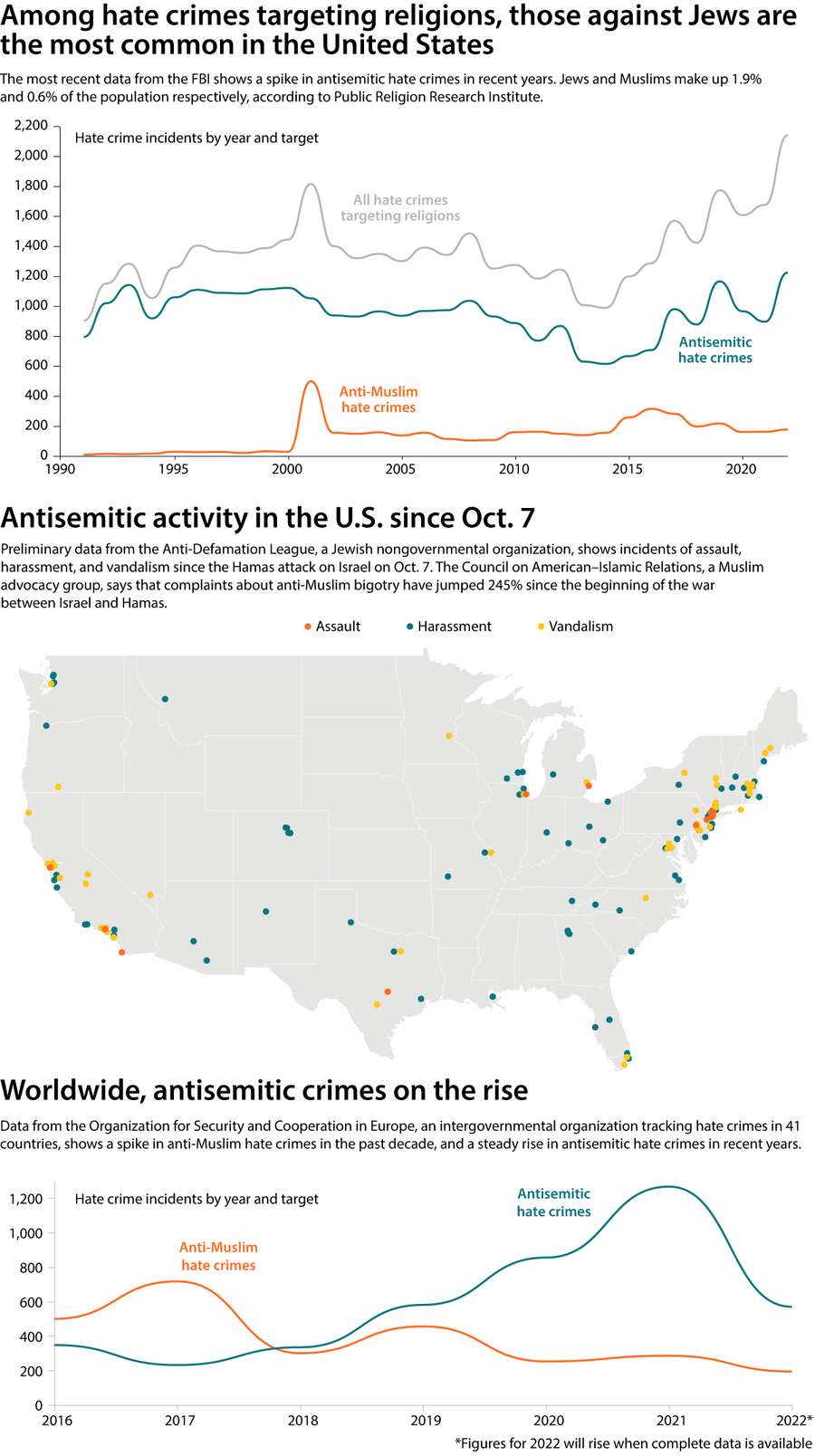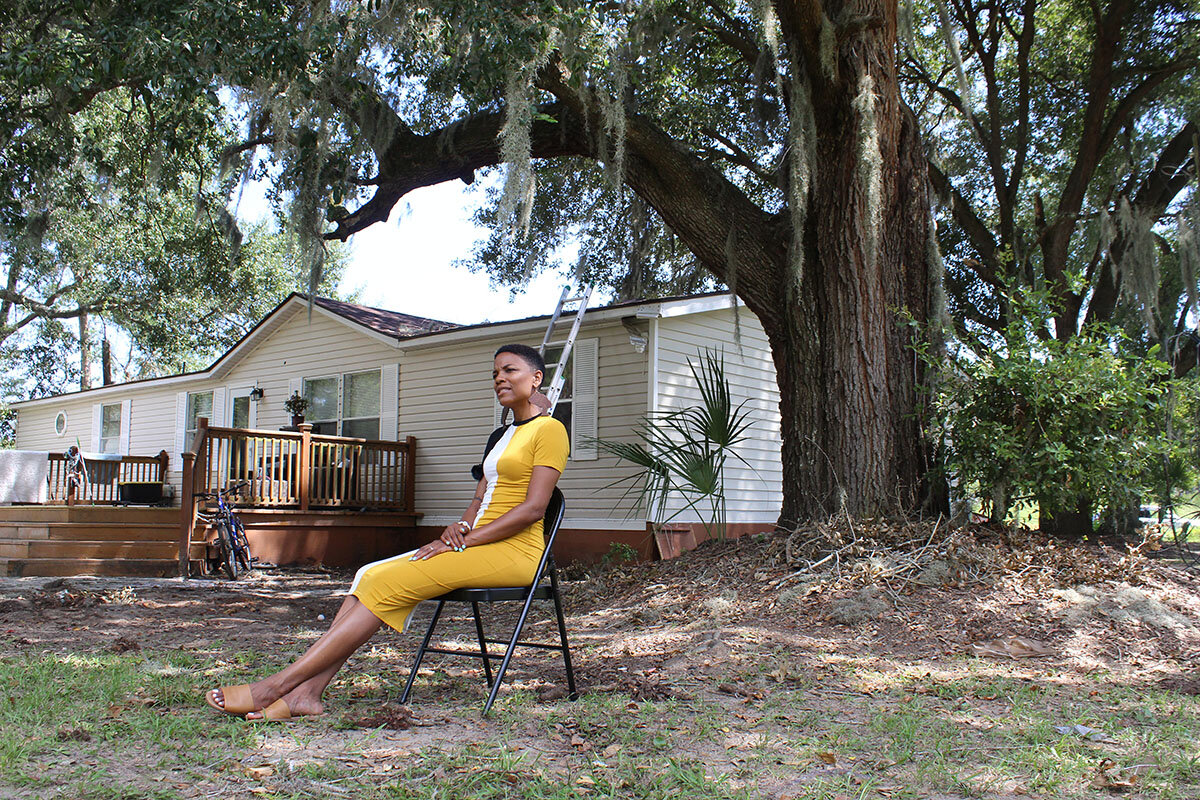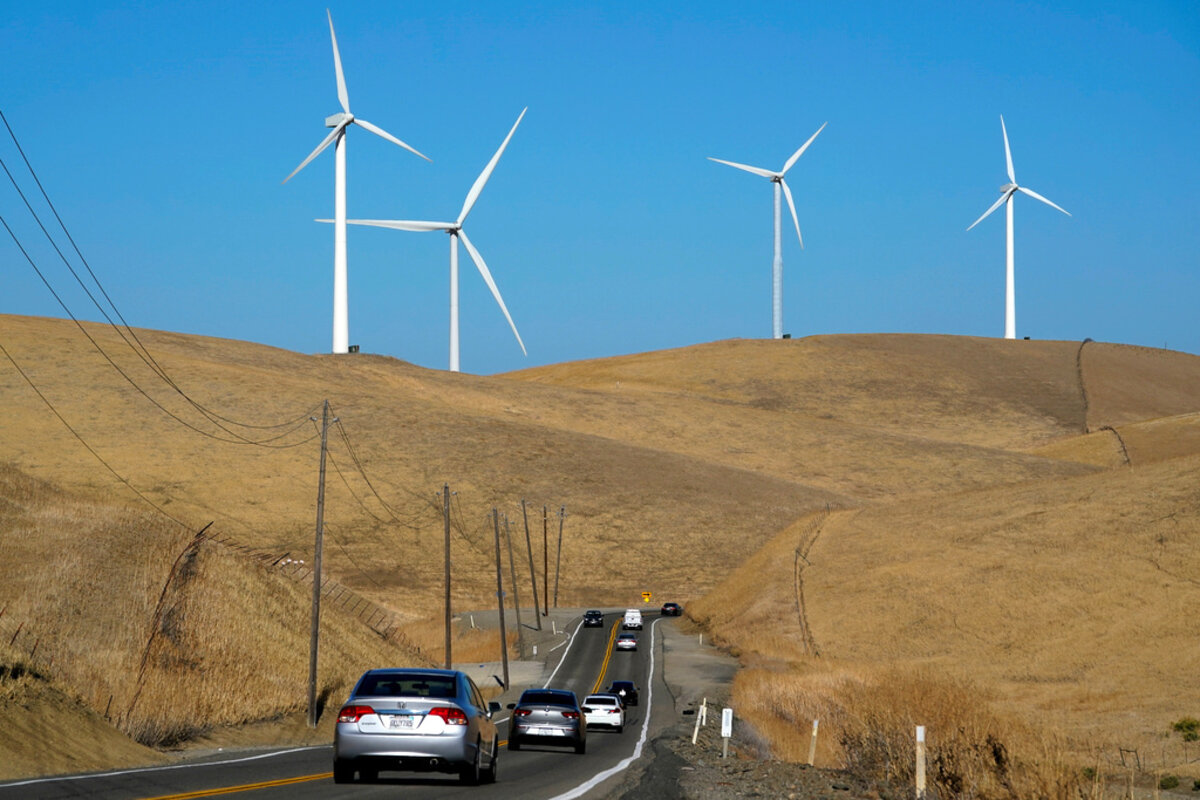You won’t get more than a few sentences into this story before one thing becomes obvious: The militants backed by Iran are eager to join the fight against Israel. To what degree will that happen? Will the war expand? That could depend largely on how Iran manages these groups.

Why is Christian Science in our name?
Our name is about honesty. The Monitor is owned by The First Church of Christ, Scientist, and we’ve always been transparent about that.
The church publishes the Monitor because it sees good journalism as vital to progress in the world. Since 1908, we’ve aimed “to injure no man, but to bless all mankind,” as our founder, Mary Baker Eddy, put it.
Here, you’ll find award-winning journalism not driven by commercial influences – a news organization that takes seriously its mission to uplift the world by seeking solutions and finding reasons for credible hope.
Explore values journalism About usMonitor Daily Podcast
- Follow us:
- Apple Podcasts
- Spotify
- RSS Feed
- Download
 Mark Sappenfield
Mark Sappenfield
In this week’s edition of “AI: good or bad?” we have a brand-new Beatles song, “Now and Then.” It’s an abandoned John Lennon demo that artificial intelligence rescued technologically and then enhanced with a little help from some friends – Paul McCartney and Ringo Starr.
In some ways, it’s a triumph. But there’s also an inescapable “uh, what next?” vibe. If AI can help edit people out of our beach photos or bring back the Beatles, how long until we get a new Ella Fitzgerald album? And is that exciting – or just plain weird?
We wrote on AI and cars this week. Look for our story next week on how musicians are using AI in innovative ways that are perhaps a bit less existentially ambiguous.
Already a subscriber? Log in
Help fund Monitor journalism for $11/ month
Monitor journalism changes lives because we open that too-small box that most people think they live in. We believe news can and should expand a sense of identity and possibility beyond narrow conventional expectations.
Our work isn't possible without your support.
Today’s stories
And why we wrote them
( 6 min. read )
Graphic
Antisemitism on the rise: Three charts on religious-based hate
Around the world, officials are seeing an uptick in antisemitism. Understandably, people have been watching the trend closely since the start of the Israel-Hamas war. But religious-based hate crimes have been on the rise for years – against Muslim Americans, too, for example. The need for vigilance is great in this moment, but also beyond it.
( 7 min. read )
Property has always been a primary path to wealth, with Black Americans and other marginalized communities historically struggling to fend off forces that would take theirs. But there are signs of a shift to protect these groups’ land and heritage, and one woman’s case has caught national attention.
Podcast

Exploring the power of civility to heal divides
What does it take to bring people out of their ideological corners? An understanding of how to move past “othering” and into a mindset of respect. That calls for the truest kind of civility, one that includes genuine engagement. Our culture writer covered a solution-seeker on this important social front. Then he brought her on our podcast to talk some more.
Respect, Dignity, and Getting Along
A letter from Gaza

( 6 min. read )
This week, two American “Flying Tigers” who helped defend China from Japan in World War II are back in Beijing. They have been received like heroes. It might seem a small thing, but the U.S. and China believe ordinary citizens can help heal frayed relations. (We wrote about another example recently.) And there was no mistaking the Flying Tigers’ joy.
The Monitor's View
( 2 min. read )
The transition to a green energy future required a long prologue as scientists and engineers sought efficient ways to harness wind, sunlight, and other renewable sources of power to curb climate change. Now that future may depend on tapping forces more commonly associated with building democracy than with developing technology.
That’s because green projects like wind turbines and solar farms, and new runs of high-tension power lines, face regulatory hurdles and opposition from diverse groups, calling on civic virtues such as listening, honesty, and fairness.
New polls show that more Americans may be willing to live near energy-producing infrastructure. One reason is that power producers are learning how to win over communities through patient engagement. Some critics of such projects “just don’t want it because they don’t want it,” Lisa Grow, CEO of Idaho Power, told the Los Angeles Times. So much of that resistance, she said, is based on misunderstanding. “But for people that have specific needs, I think it is worth the time to have a process where they can be invited in, and you can deal with some of those things upfront. If you wait until the end, you just have a fight.”
In a poll published Thursday, the LA Times and the University of California, Berkeley found that 56% of Californian voters support installing wind turbines in their communities. Even more (69%) say they would welcome solar farms. Almost double the number (52% versus 27%) back offshore wind turbines visible from their beaches.
Those views are even more widely upheld in polls across the United States. A Washington Post-University of Maryland poll in July found that more than 70% of Americans said they would be comfortable with solar farms and wind turbines in their communities. Engaging opponents of such projects, Doug Vine, director of energy analysis at the Center for Climate and Energy Solutions, told The Washington Post, is “the secret sauce in making sure that these things come together.”
That idea is now the focus of a new course at the Massachusetts Institute of Technology, the first of its kind to focus on energy regulatory reform in the context of engaging communities. Larry Susskind, the professor who designed the course, argues that ignoring community concerns creates acrimony. The course looks for solutions to what often causes projects to stall – such as misinformation or concerns about environmental injustice. A listening-first approach for regulators in granting permits for new projects may seem simplistic, but it is winning converts.
“A lack of perceived fairness and equity, particularly in the decision-making processes at the local level, increases opposition” to proposed new energy projects, a group of researchers at UC Santa Barbara concluded in a paper published in September. That underscores the value of enabling the full range of stakeholders in a community to feel heard, they wrote.
A transition from fossil fuels is increasingly feasible because of technology advances. Public support is also helping that transition, driven by the light of patience and respect.
A Christian Science Perspective
Each weekday, the Monitor includes one clearly labeled religious article offering spiritual insight on contemporary issues, including the news. The publication – in its various forms – is produced for anyone who cares about the progress of the human endeavor around the world and seeks news reported with compassion, intelligence, and an essentially constructive lens. For many, that caring has religious roots. For many, it does not. The Monitor has always embraced both audiences. The Monitor is owned by a church – The First Church of Christ, Scientist, in Boston – whose founder was concerned with both the state of the world and the quality of available news.
( 3 min. read )
Seeing ourselves and others as children of God, infinite Love, is a powerful basis for overcoming loneliness, as a woman experienced while traveling after her husband passed on.
Viewfinder

A look ahead
Thank you for joining us today. As we head into the weekend, we’re excited to unveil on Monday a new series about the Climate Generation. This is young people around the world who have come of age during the climate crisis and have been shaped by it, but not defeated. We’ll look at young people from Bangladesh to Namibia who have resolved to be a part of the solution – indeed, to lead a revolution in how the world thinks.
Come back next week to read more.







